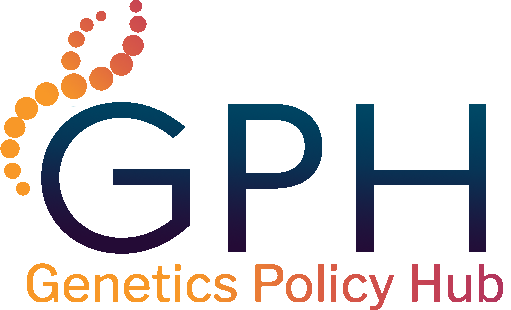From 2004 to 2024, the Health Resources and Services Administration (HRSA) funded the National Coordinating Center for the Regional Genetics Networks (NCC). NCC developed and maintained the Genetics Policy Hub.
With the conclusion of NCC funding, the Genetics Policy Hub (GPH) will no longer be updated or maintained. Information on GPH should be used for historical reference only.
Oregon
This data is meant to be used for educational purposes to inform providers, patients, insurers, and state Medicaid agencies what genetic services may or may not be written into each state’s Medicaid policy. The database is not meant to indicate or imply whether a certain program will cover a specific service, since many decisions are made on a case by case basis. If you have specific questions about whether a service is covered, you should reach out to your plan administrator. Please see this disclaimer below for more information.
Medicaid Coverage Information Published
State Contact Information
Dana Hittle
Medicaid Director
Oregon Health Authority
500 Summer Street, NE E49
Salem, OR 97301
Phone: (503) 945-5768
https://medicaiddirectors.org/wp-content/uploads/2023/06/Public_DirectorsList_June2023-1.pdf
General Genetic Testing Criteria
Genetic tests are covered as diagnostic, unless they are listed below in section E1 as excluded or have other restrictions listed in this guideline. To be covered, initial screening (e.g. physical exam, medical history, family history, laboratory studies, imaging studies) must indicate that the chance of genetic abnormality is > 10% and results would do at least one of the following:
- Change treatment,
- Change health monitoring,
- Provide prognosis, or
- Provide information needed for genetic counseling for patient; or patient’s parents, siblings, or children
Pretest and posttest genetic counseling is required for presymptomatic and predisposition genetic testing. Pretest and posttest genetic evaluation (which includes genetic counseling) is covered when provided by a suitable trained health professional with expertise and experience in genetics.
- “Suitably trained” is defined as board certified or active candidate status from the American Board of Medical Genetics, American Board of Genetic Counseling, or Genetic Nursing Credentialing Commission.
A more expensive genetic test (generally one with a wider scope or more detailed testing) is not covered if a cheaper (smaller scope) test is available and has, in this clinical context, a substantially similar sensitivity. For example, do not cover CFTR gene sequencing as the first test in a person of Northern European Caucasian ancestry because the gene panels are less expensive and provide substantially similar sensitivity in that context.
Genetic Testing Not Covered
Costs for rush genetic testing for hereditary breast/ovarian and colon/endometrial cancer is not covered.
State Specific Definition
Genetic Services for Children
Genetic Counseling Requirement
ORS 676.733
Genetic counseling license
- The Health Licensing Office may issue a license to practice genetic counseling to an applicant who:
- Is at least 18 years of age;
- Is certified by a national certification organization for genetic counselors approved by the office by rule;
- Pays a licensure fee; and
- Meets other requirements established by the office by rule.
- The office may adopt rules establishing a process for issuing a temporary license to practice genetic counseling, including but not limited to rules establishing qualifications and fees for temporary licensure. [2021 c.231 §2]
Genetic counseling should precede genetic testing for hereditary cancer whenever possible.
- Pre and post-test genetic counseling should be covered when provided by a suitable trained health professional with expertise and experience in cancer genetics. Genetic counseling is recommended for cancer survivors when test resultswould affect cancer screening.
- “Suitably trained” is defined as board certified or active candidate status from the American Board of Medical Genetics, American Board of Genetic Counseling, or Genetic Nursing Credentialing Commission.
- If timely pre-test genetic counseling is not possible for time-sensitive cases, appropriate genetic testing accompanied by pre- and post- test informed consent and post-test disclosure performed by a board-certified physician with experience in cancer genetics should be covered.
- Post-test genetic counseling should be performed as soon as is practical.
Metabolic Formula Coverage Legislation
743A.188 Inborn errors of metabolism.
Metabolic Formula Coverage & Criteria
All individual and group health insurance policies providing coverage for hospital, medical or surgical expenses, other than coverage limited to expenses from accidents or specific diseases, shall include coverage for treatment of inborn errors of metabolism that involve amino acid, carbohydrate and fat metabolism and for which medically standard methods of diagnosis, treatment and monitoring exist, including quantification of metabolites in blood, urine or spinal fluid or enzyme or DNA confirmation in tissues. Coverage shall include expenses of diagnosing, monitoring and controlling the disorders by nutritional and medical assessment, including but not limited to clinical visits, biochemical analysis and medical foods used in the treatment of such disorders.
As used in this section, “medical foods” means foods that are formulated to be consumed or administered enterally under the supervision of a physician, as defined in ORS 677.010, that are specifically processed or formulated to be deficient in one or more of the nutrients present in typical nutritional counterparts, that are for the medical and nutritional management of patients with limited capacity to metabolize ordinary foodstuffs or certain nutrients contained therein or have other specific nutrient requirements as established by medical evaluation and that are essential to optimize growth, health and metabolic homeostasis.
This section is exempt from ORS 743A.001. [Formerly 743.726]
Prior Authorization Requirements
Prior Authorization Forms
Fee Schedule
BRCA Testing Coverage
In Oregon, Medicaid (Oregon Health Plan) covers cancer genetic counseling and testing for people with signs of HBOC and Lynch Syndrome according to NCCN guidelines.
Requirements for BRCA
Breast and ovarian cancer syndrome genetic testing services (CPT 81162-81167, 81212, 81215-81217) for patients without a personal history of breast, ovarian and other associated cancers should be provided to high-risk patients as defined by the US Preventive Services Task Force or according to the NCCN Clinical Practice Guidelines in Oncology (Genetic/Familial High-Risk Assessment: Breast, Ovarian and Pancreatic V1.2023 (9/7/22) www.nccn.org).
Breast and ovarian cancer syndrome genetic testing services (CPT 81162-81167, 81212, 81215-81217)) for women with a personal history of breast, ovarian, or other associated cancers and for men with breast or other associated cancers should be provided according to the NCCN Clinical Practice Guidelines in Oncology (Genetic/Familial High-Risk Assessment: Breast, Ovarian and Pancreatic V1.2023 (9/7/22) www.nccn.org).
Cystic Fibrosis Screening
The following tests are covered only if they meet the criteria in section A (general genetic testing criteria) AND the specified situations:
- Diagnostic testing for cystic fibrosis (CF)
- CFTR, cystic fibrosis transmembrane conductance regulator tests. CPT 81220, 81221, 81222, 81223: For infants with a positive newborn screen for cystic fibrosis or who are symptomatic for cystic fibrosis, or for
clients that have previously been diagnosed with cystic fibrosis but have not had genetic testing, CFTR gene analysis of a panel containing at least the mutations recommended by the American College of Medical Genetics* (CPT 81220) is covered. If two mutations are not identified, CFTR full gene sequencing (CPT 81223) is covered. If two mutations are still not identified, duplication/deletion testing (CPT 81222) is covered. These tests may be ordered as reflex testing on the same specimen. - CPT 81224, CFTR (cystic fibrosis transmembrane conductance regulator) (e.g. cystic fibrosis) gene analysis; introm 8 poly-T analysis (e.g. male infertility): Covered only after genetic counseling.
- CFTR, cystic fibrosis transmembrane conductance regulator tests. CPT 81220, 81221, 81222, 81223: For infants with a positive newborn screen for cystic fibrosis or who are symptomatic for cystic fibrosis, or for
Hereditary Cancer Testing Coverage
PTEN (Cowden syndrome) services (CPT 81321-81323) should be provided as defined by the NCCN Clinical Practice Guidelines in Oncology (Genetic/Familial High-Risk Assessment: Ovarian and Pancreatic. V1.2023 (9/7/22) or
Genetic/Familial High-Risk Assessment: Colorectal V1.2022 (6/8/22) www.nccn.org).
Lynch Syndrome Testing Coverage
Lynch syndrome (hereditary colorectal, endometrial and other cancers associated with Lynch syndrome) services (CPT 81288, 81292-81300, 81317-81319, 81435, 81436) and familial adenomatous polyposis (FAP) services (CPT 81201- 81203) should be provided as defined by the NCCN Clinical Practice Guidelines in Oncology (Genetic/Familial High-Risk Assessment: Colorectal V1.2022 (6/8/22) www.nccn.org).
Microarray Testing
Related to diagnostic evaluation of individuals with intellectual disability (defined as a full scale or verbal IQ < 70 in an individual > age 5), developmental delay (defined as a cognitive index <70 on a standardized test appropriate for children < 5 years of age), Autism Spectrum Disorder, or multiple congenital anomalies:
- CPT 81228, 81229 and 81349, Cytogenomic constitutional microarray analysis: Cover for diagnostic evaluation of individuals with intellectual disability/developmental delay; multiple congenital anomalies; or, Autism Spectrum Disorder accompanied by at least one of the following: dysmorphic features including macro or microcephaly, congenital anomalies, or intellectual disability/developmental delay in addition to those required to diagnose Autism Spectrum Disorder.
Newborn Screening
The Oregon Health Authority (OHA) has increased the fee-for-service reimbursement rates for the newborn bloodspot screening kit (supply code S3620). For services provided on or after 9/1/2021:1.
- The rate for the two-part kit is $80.00.
- The rate for a replacement kit containing one part only is $59.00 (add modifier TC to code S3620).
- OHA will accept separate billing for the kits (outside of the bundled rate for newborn delivery).
Panel Testing
Hereditary breast cancer-related disorders genomic sequence analysis panels (CPT 81432, 81433, 81479) are only included for patients meeting the criteria for hereditary cancer syndrome testing per NCCN guidelines.
Pharmacogenetic Testing
The following test is covered only if it meets the criteria in section A (general genetic testing criteria) AND the specified situations:
CPT 81225-81227, 81230-81231, 81418, 0380U (cytochrome P450). Covered only for determining eligibility for medication therapy if required or recommended in the FDA labelling for that medication. These tests have unproven clinical utility for decisions regarding medications when not required in the FDA labeling (e.g. psychiatric, anticoagulant, opioids).
Prenatal Testing Offered
Related to preconception testing/carrier screening:
- The following tests are covered for a pregnant patient or patient contemplating pregnancy as well as the male reproductive partner:
- Screening for genetic carrier status with the minimum testing recommended by the American College of Obstetrics and Gynecology:
- Screening for cystic fibrosis carrier status (CPT 81220-81224)
- Screening for fragile X status (CPT 81243, 81244, 81171, 81172)
- Screening for spinal muscular atrophy (CPT 81329)
- Screening for Canavan disease (CPT 81200), familial dysautonomia (CPT 81260), and Tay-Sachs carrier status (CPT 81255). Ashkenazi Jewish carrier panel testing (CPT 81412) is covered if the panel would replace and would be of similar or lower cost than individual gene testing including CF carrier testing.
- Screening for hemoglobinopathies (CPT 83020, 83021)
- Expanded carrier screening (CPT 81443): A genetic counseling/geneticist consultation must be offered prior to ordering test and after test results are reported. Expanded carrier testing is ONLY covered when all of the
following are met:- the panel includes only genes with a carrier frequency of ≥ 1 in 200 or greater per ACMG Guideline (2021), AND
- the included genes have well-defined phenotype, AND
- the included genes result in conditions have a detrimental effect on quality of life OR cause cognitive or physical impairment OR require surgical or medical intervention, AND
- the included genes result in conditions have an onset early in life, AND
- the included genes result in conditions that must be diagnosable prenatally to inform antenatal interventions and/or changes in delivery management and/or education of parents about special needs
after birth.
- Screening for genetic carrier status with the minimum testing recommended by the American College of Obstetrics and Gynecology:
Whole Exome Sequencing
CPT 81425-81427, whole genome sequencing: testing is only covered when it meets criteria is general genetic testing criteria AND:
- The testing is for a critically ill infant up to one year of age admitted to an inpatient intensive care unit (NICU/PICU) with a complex illness of unknown etiology; AND
- Whole genome sequencing is recommended by a medical geneticist or other physician sub-specialist, including but not limited to a neonatologist or pediatric intensivist with expertise in the conditions and/or genetic disorder for which testing is being considered.
Other Tests Covered
Related to diagnostic evaluation of individuals with intellectual disability (defined as a full scale or verbal IQ < 70 in an individual > age 5), developmental delay (defined as a cognitive index <70 on a standardized test appropriate for children < 5 years of age), Autism Spectrum Disorder, or multiple congenital anomalies: 1) CPT 81243, 81244, 81171,81172 Fragile X genetic testing is covered for individuals with intellectual disability/developmental delay. Although the yield of Fragile X is 3.5-10%, this is included because of additional reproductive implications. 2) A visit with the appropriate specialist (often genetics, developmental pediatrics, or child neurology), including physicalexam, medical history, and family history is covered. Physical exam, medical history, and family history by the appropriate specialist, prior to any genetic testing is often the most cost-effective strategy and is encouraged. The following tests are covered only if it meets the criteria in section A (general genetic testing criteria) AND the specified situations:
- CPT 81205, BCKDHB (branched-chain keto acid dehydrogenase E1, beta polypeptide) (eg, Maple syrup urine disease) gene analysis, common variants (eg, R183P, G278S, E422X): Cover only when the newborn screening test is abnormal and serum amino acids are normal
- CPT 81240, F2 (prothrombin, coagulation factor II) (eg, hereditary hypercoagulability) gene analysis, 20210G>A variant: Factor 2 20210G>A testing should not be covered for adults with idiopathic venous thromboembolism;
for asymptomatic family members of patients with venous thromboembolism and a Factor V Leiden or Prothrombin 20210G>A mutation; or for determining the etiology of recurrent fetal loss or placental abruption. - CPT 81241, F5 (coagulation Factor V) (eg, hereditary hypercoagulability) gene analysis, Leiden variant: Factor V Leiden testing should not be covered for: adults with idiopathic venous thromboembolism; for asymptomatic
family members of patients with venous thromboembolism and a Factor V Leiden or Prothrombin 20210G>A mutation; or for determining the etiology of recurrent fetal loss or placental abruption. - CPT 81247, G6PD (glucose-6-phosphate dehydrogenase) (eg, hemolytic anemia, jaundice), gene analysis; common variant(s) (eg, A, A-) should only be covered
- After G6PD enzyme activity testing is done and found to be normal; AND either (a) There is an urgent clinical reason to know if a deficiency is present, e.g. in a case of acute hemolysis; OR (b) In situations where the enzyme activity could be unreliable, e.g. female carrier with extreme Lyonization.
- CPT 81248, G6PD (glucose-6-phosphate dehydrogenase) (eg, hemolytic anemia, jaundice), gene analysis; known familial variant(s) is only covered when the information is required for genetic counseling.
- CPT 81249, G6PD (glucose-6-phosphate dehydrogenase) (eg, hemolytic anemia, jaundice), gene analysis; full gene sequence is only covered
- after G6PD enzyme activity has been tested, and
- the requirements under CPT 81247 above have been met, and
- common variants (CPT 81247) have been tested for and not found.
- CPT 81256, HFE (hemochromatosis) (eg, hereditary hemochromatosis) gene analysis, common variants (eg, C282Y, H63D): Covered for diagnostic testing of patients with elevated transferrin saturation or ferritin levels.
Covered for predictive testing ONLY when a first degree family member has treatable iron overload from HFE. - CPT 81332, SERPINA1 (serpin peptidase inhibitor, clade A, alpha-1 antiproteinase, antitrypsin, member 1) (eg, alpha-1-antitrypsin deficiency), gene analysis, common variants (eg, *S and *Z): The alpha-1-antitrypsin protein
level should be the first line test for a suspected diagnosis of AAT deficiency in symptomatic individuals with unexplained liver disease or obstructive lung disease that is not asthma or in a middle age individual with
unexplained dyspnea. Genetic testing of the anpha-1 phenotype test is appropriate if the protein test is abnormal or borderline. The genetic test is appropriate for siblings of people with AAT deficiency regardless of the AAT protein test results. - CPT 81415-81416, exome testing: A genetic counseling/geneticist consultation is required prior to ordering test
- CPT 81430-81431, Hearing loss (e.g., nonsyndromic hearing loss, Usher syndrome, Pendred syndrome); genomic sequence analysis panel: Testing for mutations in GJB2 and GJB6 need to be done first and be negative in non-syndromic patients prior to panel testing.
- CPT 81440, 81460, 81465, mitochondrial genome testing: A genetic counseling/geneticist or metabolic consultation is required prior to ordering test.
Other Information
If the mutation in the family is known, only the test for that mutation is covered. For example, if a mutation for BRCA 1 has been identified in a family, a single site mutation analysis for that mutation is covered (CPT 81215), while a full sequence BRCA 1 and 2 (CPT 81163) analyses is not. There is one exception, for individuals of Ashkenazi Jewish ancestry with a known mutation in the family, the panel for Ashkenazi Jewish BRCA mutations is covered (CPT 81212).
Resources
Newborn Screening Reimbursement

Disclaimer: The information contained in the database has been obtained from sources believed to be reliable but NCC has not attempted to validate or confirm the information. The database may be updated periodically. However, the accuracy and completeness of the information contained in the database cannot be, and is not, guaranteed. NCC makes no warranty of the accuracy, completeness or timeliness of this information, and shall not be liable for any decision made in reliance on this information. It is the user’s responsibility to verify this information by contacting the state Medicaid agency directly.
The database contains links to third-party websites. These links are provided solely as a convenience to users and not as a guarantee, warrantee, or recommendation by NCC of the content on such third-party websites or as an indication of any affiliation, sponsorship or endorsement of such third party websites. NCC is not responsible for the content of linked third-party sites and does not make any representations regarding the privacy practices of, or the content or accuracy of materials on, such third-party websites. If you decide to access linked third-party websites, you do so at your own risk. Your use of third-party websites is subject to the terms of use for such sites.

